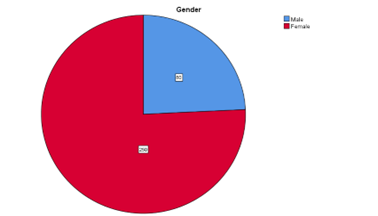PREVALENCE AND CORRELATION OF PSYCHOLOGICAL DISTRESS AND COGNITIVE DYSFUNCTION AMONG AI USERS MEDICAL STUDENTS: A CROSS-SECTIONAL STUDY
DOI:
https://doi.org/10.71146/kjmr526Keywords:
Artificial Intelligence (AI), Psychological Distress, Cognitive FunctionAbstract
ABSTRACT
Objective:
This study aims to assess the prevalence and explore the correlation between psychological distress and cognitive dysfunction among medical students utilizing artificial intelligence.
Methodology:
The cross-sectional survey involved 330 medical students from various programs, aged 18 to 30 years, using non-probability convenience sampling. Participants completed the General Health Questionnaire (GHQ-12) to assess psychological distress and the Montreal Cognitive Assessment (MOCA) for cognitive function. Data collection included face-to-face interviews, with informed consent obtained prior to participation. SPSS version 25 was used for statistical analysis.
Results:
The findings revealed that 54.5% of participants had normal GHQ scores, while 42.8% experienced psychological distress, including 6.7% with severe distress. MOCA results indicated that 73% of participants scored normally, whereas 27% exhibited mild cognitive impairment. GHQ and MOCA scores showed a moderately positive correlation (r = 0.543, p < 0.001), indicating a negative relationship between cognitive performance and psychological distress.
Conclusion:
The study highlights a significant prevalence of psychological distress and mild cognitive impairment among medical students, emphasizing the need for targeted mental health interventions within medical education to improve overall well-being and academic performance.
Key words: Artificial Intelligence, Psychological Distress, Cognitive Function.
Downloads

Downloads
Published
Issue
Section
License
Copyright (c) 2025 Sana Shahzad, Hamza Ahmed, Ayesha Sonia, Syeda Sana Waheed, Muhammad Shahrukh Khan, Om Perkash (Author)

This work is licensed under a Creative Commons Attribution 4.0 International License.






